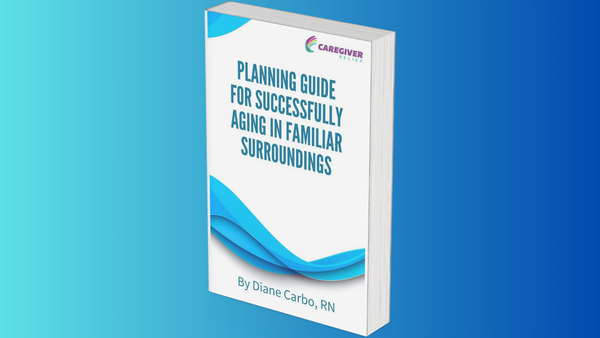Big Changes in Medicare ABCD for 2024: What Enrollees Need to Know
In 2024, Medicare Parts A, B, C, and D will undergo significant changes. These updates include new coverage options, cost adjustments, and enhanced benefits. It's essential for enrollees to understand these changes to make informed healthcare decisions.

What’s New in Medicare Parts A, B, C, D for 2024?
The year 2024 brings significant updates to Medicare, impacting its over 65 million enrollees. These changes aim to expand care and enhance affordability, especially in the realm of prescription drugs, following the landmark drug law of 2022. However, enrollees will also see adjustments in premiums and deductibles across Medicare Parts A, B, C, and D.
Let's delve into the specific changes in premiums and out-of-pocket expenses for each part of Medicare (A, B, C, D) that are anticipated for 2024.
Medicare Part A (Hospital Insurance) Changes for 2024
- Premiums: Most Medicare enrollees don't pay a monthly premium for Part A, as it's usually earned through work history. However, for those who haven’t qualified for premium-free Part A, the monthly premium for 2024 will be around $505, which is a slight decrease from 2023.
- Deductibles: The Part A deductible for each hospital stay is set to increase to $1,632, up by $32 from the previous year.
Medicare Part B (Medical Insurance) Adjustments for 2024
- Premiums: The standard monthly Part B premium is expected to rise to $174.70, an increase of nearly $10 from 2023. This premium is typically deducted from Social Security benefits. The good news is that the Social Security cost-of-living increase (COLA) should more than cover this rise for most beneficiaries.
- Deductibles: The annual deductible for Part B will see an increase to $240 in 2024, up from $226 in 2023.
Medicare Part C (Medicare Advantage) Updates for 2024
- Premiums and Out-of-Pocket Expenses: Changes in premiums and out-of-pocket costs for Medicare Advantage plans can vary significantly based on the plan and where you live. Enrollees will need to check with their specific plan for detailed information. It's worth noting that enrollees usually must pay the Part B premium in addition to any premium charged by the Advantage plan.
- New Benefits and Rules: Many MA plans may offer additional benefits and may adjust their out-of-pocket limits or copayments, so it’s crucial to review plan details for 2024.
Medicare Part D (Prescription Drug Coverage) Changes for 2024
Catastrophic Cap: A major change is the introduction of a catastrophic cap. Once enrollees have spent $8,000 on their medications, they will not incur any more out-of-pocket costs for the rest of the year.
Out-of-Pocket Cap: Starting in 2025, a significant change will be an annual $2,000 out-of-pocket cap on Part D spending.
Extra Help Program Expansion: The eligibility for the Extra Help program, which assists with prescription drug costs, will be expanded in 2024, raising the income threshold and potentially benefiting more enrollees.
The changes in Medicare for 2024 are designed to make healthcare more affordable and accessible, with particular emphasis on prescription drug costs. Beneficiaries should carefully review these changes to understand how their premiums, deductibles, and out-of-pocket expenses may be affected in the coming year. As always, it's important for Medicare enrollees to stay informed and consider their health care needs when reviewing their Medicare coverage options.
Check out MyFreePharmacyPlan.org to see how you can get your meds for free
Medicare Advantage (MA) Plans: A Rising Trend
More than half of Medicare beneficiaries now opt for Medicare Advantage (MA), an alternative to traditional Medicare. These plans will see new requirements in 2024, including added behavioral health coverage, standardized broker commissions, and midyear benefit notifications.
let's delve into the details of copays, deductibles, and out-of-pocket expenses, particularly in the context of Medicare Advantage (MA) Plans, which are becoming increasingly popular among Medicare beneficiaries.

Copays, Deductibles, and Out-of-Pocket Expenses in Medicare Advantage Plans
Copays (Co-payments):
Definition: A copay in a Medicare Advantage plan is a fixed amount you pay for a specific service or prescription.
Example: You might have a $20 copay for a doctor's visit or a $10 copay for generic drugs.
Deductibles:
Definition: This is the amount you pay out-of-pocket before your MA plan starts to pay its share.
Example: Some MA plans might have a $200 annual deductible.
Out-of-Pocket Maximums:
Unique to MA Plans: These plans come with an annual limit on your out-of-pocket expenses for medical services, which Original Medicare doesn’t offer.
Your Medicare Advantage plans Maximum Out-of-Pocket (MOOP) threshold is a cap on the amount you spend on healthcare copayments and coinsurance for services covered under Medicare Part A (hospitalization) and Part B (outpatient or doctor visits). A higher MOOP limit indicates that you'll incur more out-of-pocket expenses for your covered services in Medicare Part A and B before hitting the annual cost ceiling. Note that MOOP limits can vary annually, and for 2024, Medicare Advantage plans may set their Maximum Out-of-Pocket limit as high as $8,850. Historically, this increases every year. In 2023, it was $7400 for the year. You can see there is a considerable increase.With the growing aging population this will increase every year.

Know what your Medicare Out Of Pocket Expenses Limits for your plan are
What this implies is that if your healthcare expenses are substantial, you should be mindful of any potential increase in your plan's out-of-pocket spending limit. Should your MOOP rise, it might be prudent to consider switching to another Medicare Advantage plan with a lower MOOP limit, possibly one $3,850 or less. Essentially, the greater the MOOP limit, the more you might end up spending on healthcare services covered within the year. However, it's reassuring to know that your in-network costs for Part A and Part B will not exceed $8,850, though this doesn't include expenses for Part D prescription drugs.
Approximately 4.4 million members of Medicare Advantage plans will face an increase in their in-network MOOP for 2024. These increases can vary between $50 and $5,400. The table below illustrates how many individuals are impacted by various ranges of MOOP increases for 2024.
Pros and Cons of Medicare Advantage Plans
Pros:
All-in-One Coverage: MA plans combine Part A, Part B, and usually Part D.
Additional Services: Many plans offer dental, vision, and hearing benefits.
Out-of-Pocket Maximum: This cap on expenses can be financially protective.
Care Coordination: Some plans emphasize coordinated care, which might lead to better health outcomes.
Cons:
Limited Network: MA plans often require you to use network providers.
Varied Plan Rules: Need for referrals or prior authorizations for certain services.
Additional Premiums: Beyond the standard Part B premium, some MA plans may charge an extra premium.
Geographic Restrictions: Coverage may be limited to specific areas, affecting those who travel frequently.

Cost Sharing in Medicare Advantage
Cost Sharing refers to the portion of medical expenses that a policyholder must pay out of their own pocket.
Skilled Nursing Facility Care:
- Under some MA plans, days 21-100 in a skilled nursing facility might have a daily copay (e.g., $250 per day).
Hospitalization:
- For hospital stays, MA plans might charge a daily copay for the first several days instead of a single deductible.
Medicare Advantage Plans: 2024 Trends and Changes
Behavioral Health Coverage: In 2024, MA plans are expected to include more comprehensive behavioral health services, addressing a growing need for mental health support. This has been needed for a very long time, especially with the growing aging population. WIth the aging population and dementia, these units are necessary for seniors that have behavioral challenges with dementia. It is also will provide better mental health care for our seniors.
Standardized Broker Commissions: This change aims to ensure that brokers’ recommendations are based on beneficiaries’ needs, not on differing commission structures. I want to address the term" standardize broker commision"
"Standardized Broker Commissions" in the context of Medicare Advantage (MA) plans is a significant change being implemented to ensure more uniformity and fairness in how brokers are compensated for enrolling individuals into these plans.
Understanding Broker Commissions in Medicare Advantage Plans
Current Scenario:
Most people do not know that the person selling Medicare Advantage or Medicare Supplements get a commision. Before standardization, brokers and insurance agents received varying commissions for selling different Medicare Advantage plans. This variability could potentially influence the plans they recommend to consumers, as some plans might offer higher commissions than others.
This variable commission structure raised concerns about potential biases in the recommendations provided by brokers. There was a risk that brokers might steer beneficiaries towards plans that offer higher commissions, rather than those that best meet the individual's health care needs and financial situation.
Standardized Broker Commissions: The 2024 Change
Standardization:
The move to standardize broker commissions means setting a fixed or flat rate that brokers receive, regardless of which Medicare Advantage plan they enroll a beneficiary into.
This is intended to minimize the incentive for brokers to favor one plan over another due to differing commission rates.
Benefits:
Fair Recommendations: It encourages brokers to recommend the most suitable plan for the individual, based on healthcare needs and budget, rather than the commission they would earn.
Transparency: This standardization can enhance the transparency of the enrollment process, giving beneficiaries confidence that the advice they receive is unbiased. I wish they would do this with our medications.
Implementation:
This change is expected to be part of the new requirements for MA plans starting in 2024. It will create a more level playing field among different plans and ensure that the focus remains on the beneficiary's best interests.
The standardization of broker commissions in Medicare Advantage plans is a significant step towards ensuring that beneficiaries receive unbiased advice when choosing a plan. It aligns the interests of brokers with those of enrollees, fostering a more trustworthy and transparent environment for Medicare plan selection.
Midyear Benefit Notifications: Plans will be required to inform enrollees about unused benefits, helping them to maximize their plan’s offerings.
Medicare Advantage plans offer an alternative to Traditional Medicare with additional benefits but come with their own set of rules and limitations. The introduction of new requirements and enhancements in 2024, like added behavioral health coverage, aims to make these plans more robust and user-friendly. Beneficiaries should evaluate these plans based on their health needs, financial situation, and preferences to make the most informed decision for their healthcare coverage.

Coordination of Care in Original Medicare
The Centers for Medicare & Medicaid Services (CMS) are focusing on improving care coordination for Medicare beneficiaries. This includes reimbursing providers for patient navigation assistance, especially in cases of complex illnesses, and paying providers to train family caregivers.
The Centers for Medicare & Medicaid Services (CMS) are indeed making concerted efforts to enhance care coordination within Original Medicare. This initiative is particularly significant because it aims to streamline healthcare services, improve patient outcomes, and potentially reduce healthcare costs. Let's break down what this means in more detail:
Importance of Care Coordination in Original Medicare
Care coordination in Original Medicare is about ensuring that all aspects of a patient's healthcare are managed efficiently and effectively. This is crucial for beneficiaries who may be dealing with multiple health issues, seeing various specialists, and taking several medications. Proper coordination can lead to better health outcomes and a more satisfying healthcare experience.

Patient Navigation in Healthcare
Patient navigation is a healthcare approach designed to enhance access to medical services by simplifying the complexities involved in navigating various health, educational, and social services. This model is particularly vital for adults with intricate conditions, involving multiple physical, mental, social, cultural, and spiritual needs. Such individuals often experience frequent transitions across different healthcare providers, settings (like moving from a hospital to community care), and stages of illness or recovery. Unfortunately, these transitions are typically fragmented, leading to limited access to services and compromising the quality and effectiveness of care.
For patients and their family caregivers navigating this fragmented system, the experience is often fraught with challenges. Poor communication during transitions can result in less-than-ideal outcomes, such as increased hospital readmissions or premature transitions to long-term care facilities. However, when care is delivered in an integrated system – defined here as care coordinated by a team of healthcare professionals across various settings – patients and caregivers tend to have better experiences and outcomes. This includes higher satisfaction with care and reduced caregiver burden.
As a care manager, this is such a necessary role to support the family caregiver. Family caregivers are now expected to provide complex care that was once done by professional nurses. Wound care, IV's, tube feedings and more. Family caregivers have struggled to provide this care, with very little support or education.
Reimbursing Providers for Patient Navigation Assistance
Objective: The aim is to financially support healthcare providers who assist patients in navigating the complex healthcare system.
Scope: This is particularly vital for patients with complex medical conditions, who often require a range of services from different providers and may find it challenging to manage their care effectively.
Benefits: By reimbursing providers for this assistance, CMS acknowledges the time and resources needed to help patients understand their treatment plans, coordinate appointments, manage medications, and facilitate communication between various healthcare professionals.

Paying Providers to Train Family Caregivers
- Rationale: Family caregivers play a crucial role in the health and well-being of Medicare beneficiaries, especially those with chronic or severe conditions.
Training Focus: Providers can be reimbursed for training family caregivers in various aspects of care. This might include how to manage medications, recognize signs of worsening conditions, perform basic medical or nursing tasks, and effectively use healthcare equipment.
Impact: Empowering family caregivers through training can improve patient care at home, reduce the likelihood of hospital readmissions, and enhance the overall quality of life for beneficiaries.
Broader Implications of Improved Care Coordination
Patient-Centered Care: Enhances the focus on treating the patient holistically rather than managing individual symptoms or conditions in isolation.
Create A Person Centered Profile For Your Family Member
Efficiency and Cost-Effectiveness: Well-coordinated care can lead to fewer duplicated services, less unnecessary hospitalization, and overall cost savings for both patients and the Medicare program.
Quality of Care: Improved coordination often leads to better adherence to treatment plans and, consequently, better health outcomes.
CMS's focus on improving care coordination in Original Medicare marks a significant step towards a more integrated, patient-centered healthcare system. By financially supporting patient navigation and caregiver training, CMS aims to make healthcare more accessible, effective, and responsive to the needs of Medicare beneficiaries. This approach not only benefits patients and their families but also has the potential to improve the efficiency and sustainability of the healthcare system as a whole.

Prescription Drug Savings and Premium Changes
Medicare's new drug law will reduce prescription costs and expand the Extra Help program for low-income enrollees. Premiums and deductibles for Medicare Part A and Part B will experience slight changes, affecting enrollees differently based on their plans and income levels.
Please check out The Struggle of Seniors and Medications:The role of Medicare and Emerging Solutions
Medicare Part D: Catastrophic Cap and Extra Help Expansion
For high-cost prescription drugs, a catastrophic cap will be introduced, and the Extra Help program’s eligibility will be expanded, providing significant financial relief for those with prescription drug needs.
Medicare as an Accountable Care Organization (ACO)
The move towards making Medicare an ACO involves ensuring all beneficiaries are enrolled in organizations that manage the quality and cost of their care effectively. This change is aimed at improving overall care coordination and reducing healthcare costs. Reducing health care costs means that the consumer will pay more out of pocket for recommended treatments. The high copay, the preauthorizations, the deductibles and out of pocket expenses will negatively impact those that do not qualify for Medicaid. They will be expected to pay out of pocket for recommended services or make the decision to do without.
Is Medicare Making this move as Mandatory?
The concept of transforming Medicare into an Accountable Care Organization (ACO) reflects a shift towards a more coordinated, efficient, and quality-driven healthcare system. It is expected that all Medicare recipients will belong to a AOC or an Advantage plan by 2030.
An ACO is a network of doctors, hospitals, and other healthcare providers that voluntarily come together to provide coordinated high-quality care to their patients. The primary goal is to ensure that patients, especially those with chronic conditions, get the right care at the right time while avoiding unnecessary duplication of services and preventing medical errors.
Key Aspects of Medicare as an ACO
Enhanced Care Coordination:
ACOs focus on ensuring that healthcare providers across the continuum of care work collaboratively. Bottom line is, government policy makers are replacing our doctors. The doctor patient relationship no longer exists. This is forcing seniors into a managed care plan.
This coordination is particularly crucial for patients with complex health needs, ensuring they receive appropriate care without unnecessary or redundant services.

Quality Management:
ACOs are held accountable for the quality of care they provide. They must meet specific benchmarks for patient outcomes and satisfaction.
The shift towards quality-focused care rather than volume-focused (where providers are rewarded for the quantity of care provided) marks a significant change in healthcare delivery.
Cost-Effectiveness:
By streamlining care and focusing on preventative measures, ACOs aim to reduce overall healthcare costs. In other words, the health care consumer will be more responsible for paying out of pocket for the recommended treatments, services, or even equipment.
Effective management of chronic diseases and early intervention can prevent expensive emergency room visits and hospitalizations.
Beneficiary Enrollment:
In this model, all Medicare beneficiaries would be part of an ACO, ensuring consistent access to coordinated and quality care.
Beneficiaries would still have the freedom to choose their healthcare providers within the ACO network.
Provider Incentives:
Healthcare providers in an ACO are incentivized to keep their patients healthy and out of the hospital.
These incentives align provider goals with patient outcomes, encouraging more preventive care and early disease management.
Potential Benefits and Challenges
Benefits:
Improved patient experience with more personalized and coordinated care.
Reduction in healthcare costs due to more efficient care delivery and decreased need for expensive hospital care.
Enhanced focus on preventive care and wellness.
Challenges:
Integrating diverse healthcare providers and services into a cohesive unit.
Ensuring patient choice and flexibility within the ACO framework.
Establishing effective metrics to measure quality and performance.
Transitioning Medicare to function as an Accountable Care Organization represents a major shift towards a more integrated, patient-centered healthcare system. This approach has the potential to significantly improve the quality of care for Medicare beneficiaries while also addressing the rising costs of healthcare. However, its success will depend on the effective implementation and collaboration among all participants in the healthcare system – from individual providers to large healthcare institutions.
Conclusion: Navigating Your Medicare Options
Understanding the ABCs of Medicare is crucial for making informed decisions about your health care coverage. Each part—A, B, C, and D—plays a unique role in providing comprehensive health care coverage. Whether you are new to Medicare or considering changing your plan, it's important to understand how each part works and what it offers.




